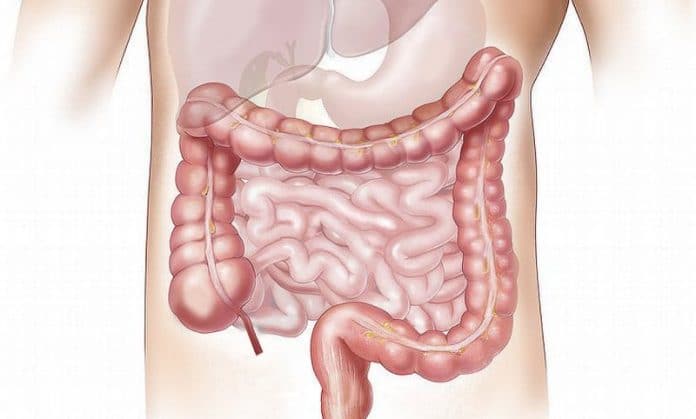Cannabis has proven effective in treating some sufferers of Crohn’s Disease, but the assumed reason it works has been thrown into doubt.
Crohn’s disease is a chronic inflammatory disease of the intestines and may be accompanied by the development of ulcers and fistulae. There is no cure for the condition and for those particularly badly afflicted by Crohn’s disease, it may result in the need for surgical removal of parts of the intestine.
Even establishing a diagnosis can be problematic as Crohn’s disease often mimics other conditions.
Crohn’s Disease and Ulcerative Colitis are collectively known as Inflammatory Bowel Disease (IBD). According to the Australian Crohn’s and Colitis Association (CCA), Australia has one of the highest rates of IBD prevalence in the world. 80,000 Australians live with IBD and the Association states numbers are expected to increase to more than 100,000 by 2022.
Cannabis has been used medically for the treatment of bowel conditions for thousands of years and more recently in relation to Crohn’s disease specifically. It was believed that it’s the anti-inflammatory properties of some cannabinoids that provide relief.
In what’s claimed to be the first study of its nature, cannabis oil has been shown to significantly improve Crohn’s disease symptoms, but in an odd twist it doesn’t appear to have an effect on gut inflammation.
A group of Israeli researchers studied 46 people with moderately severe Crohn’s disease, who were given either cannabis oil containing 15% cannabidiol and 4% tetrahydrocannabinol or placebo. Symptoms and quality of life were gauged before, during and after the treatment and gut inflammation assessed through endoscopy and blood and stool samples.
To the researchers’ surprise, while symptoms improved, there were no statistically significant improvements in endoscopic scores or in inflammatory markers in those treated with the cannabis preparation.
“We know that cannabinoids can have profound anti-inflammatory effects but this study indicates that the improvement in symptoms may not be related to these anti-inflammatory properties,” said lead researcher Dr Timna Naftali; who outlined the research at UEG Week 2018 in Vienna.
The researchers intend to explore the issue further. While Dr. Naftali states for now, medicinal cannabis should be considered an alternative or additional therapy for temporary relief in some Crohn’s Disease sufferers.


